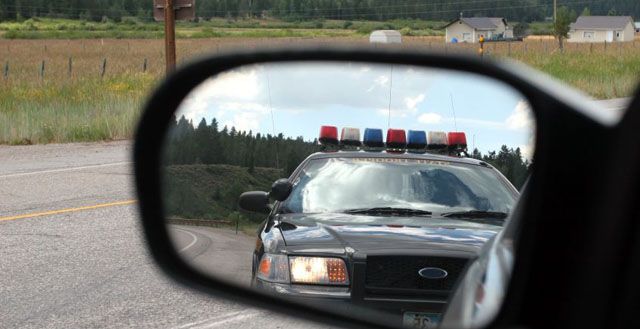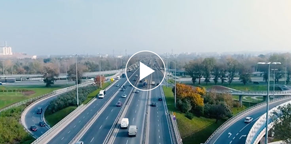While it’s difficult to get current statistics on traffic stops, recent data and research indicates that the police pull over more than 50,000 drivers on a typical day in the United States. That’s more than 20 million motorists every year. As a result, it’s an unfortunate fact that most drivers will be pulled over at some point during their lifetime, if not more than once.
Given these statistics, we want you to be as prepared as possible if you happen to be pulled over by the police.

First things first, when an officer turns on his lights and sirens, it’s important to ensure the officer knows you see him. This means slowing down immediately so the officer doesn’t assume you’re trying to get away and turn on your blinker to let the officer know you’re pulling over.
Then, move to the side of the road safely as soon as possible. If there isn’t a safe place to pull over, the officer may use a speaker to direct you where to pull over. Once you’re parked, turn on your emergency flashers.
Next, turn off your engine, roll down your window and turn on your interior dome lights (if its dark outside).

Some other things to keep in mind. Some may sound obvious and some not relevant to you, but we want to make sure we cover all the bases:
- Stay calm and keep your hands on the steering wheel, the officer will feel safer if he can see where your hands are.
- Do not directly admit to your mistake
- Anything you say to the officer can and will be used against you in court
- ALWAYS have your license, registration, and insurance card with you when you’re driving
- Failure to have any of these articles can result in further consequences
- Make sure the documents are valid as well. Expired documents can lead to more issues
- If you’re a carrying a gun, let the officer know
- Some states are “must inform” states which means you are legally obligated to tell an office you have a firearm with you in the vehicle
- Be polite with the officer
- If you are lucky, the officer may let you go without any repercussions because you were being cooperative with them
- You do not have to consent to a search
- If an officer does not have probable cause, they do not have the legal right to search your car
- Probable cause – reasonable grounds for a search (empty alcohol bottle, marijuana odor, blood stains)
- Sign the citation (in some states)
- The citation is recognition that you’ve received the citation and agree to follow the next steps where it’s paying a fine or showing up to court
- Be safe when getting back on the road
- Make sure your mind is in the right place to get back on the road
- It is recommended to take some time to collect yourself after being pulled over
At International AutoSource (IAS) one of our key goals is to help educate expats as much as possible about driving in the U.S.

We are the vehicle experts for expats.
If we can help with anything or if you have any questions, please contact us.
References and sources:
https://www.nolo.com/legal-encyclopedia/police-stops-when-pulled-over-30186.html
https://www.artofmanliness.com/articles/what-to-do-when-you-get-pulled-over-by-the-police/





